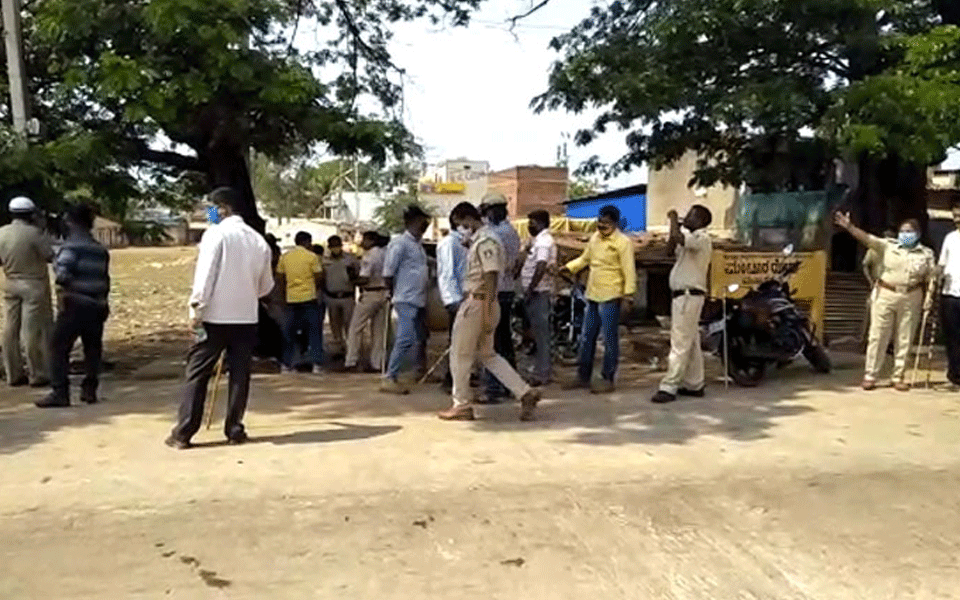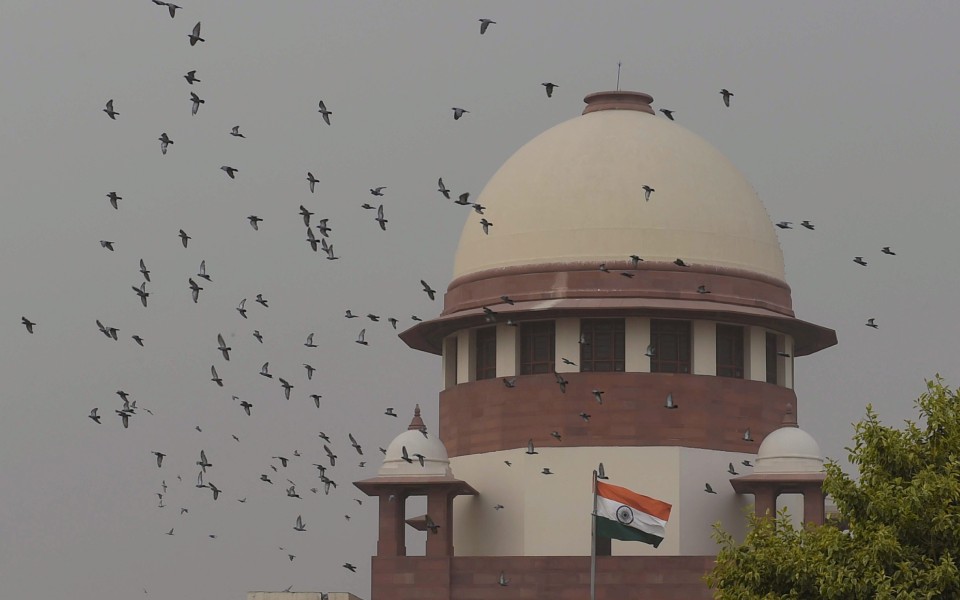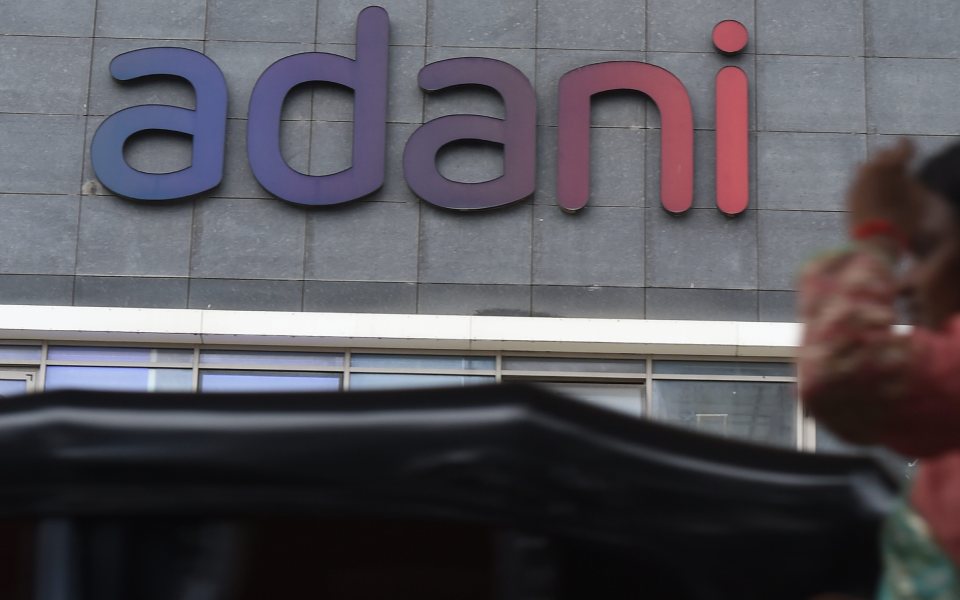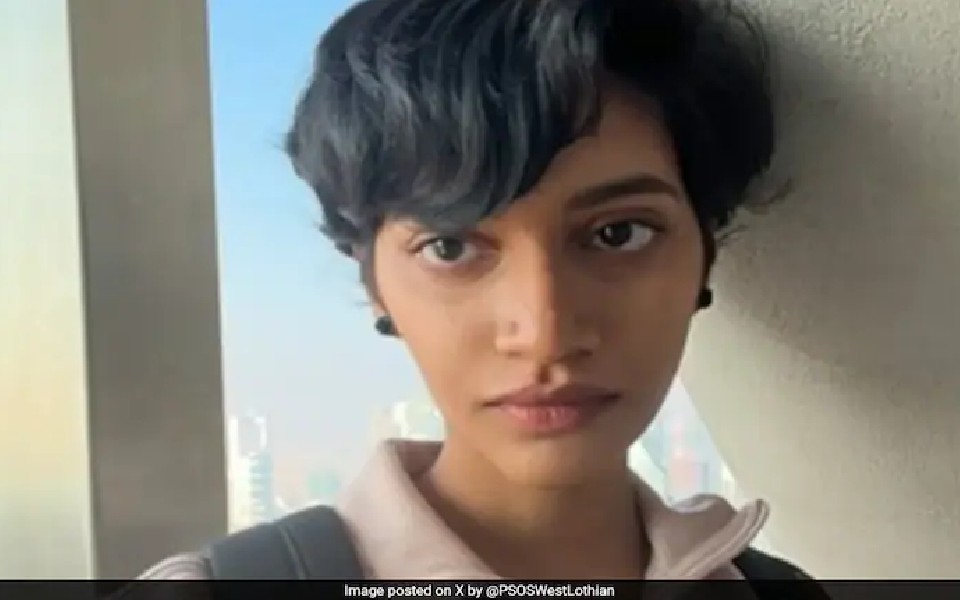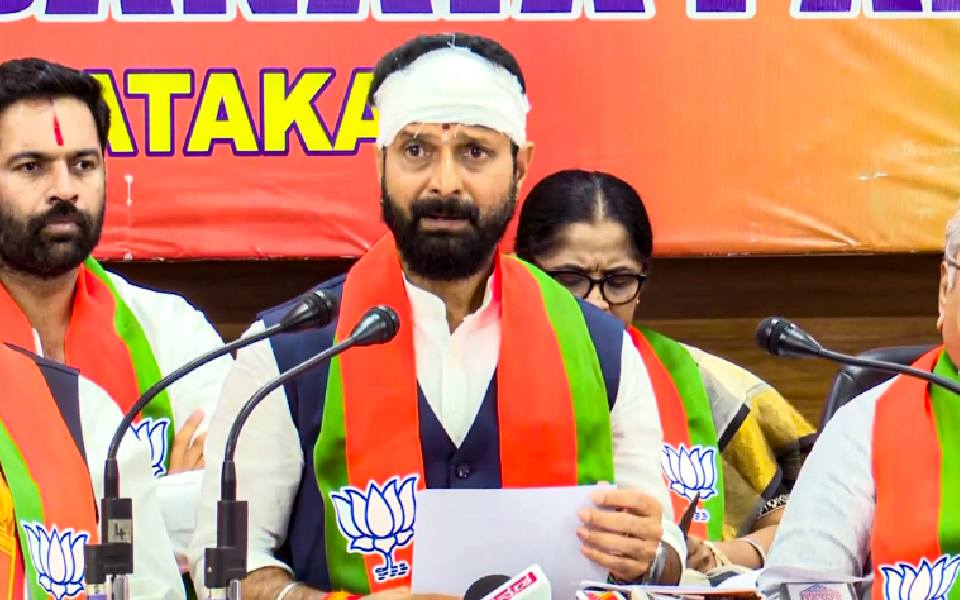Hubballi: The stone-pelting incident at Hubballi that the police blamed on Muslims who gathered for the Friday prayers in defiance of the lockdown was actually triggered by the police themselves, locals have claimed.
Overzealous policemen entered the mosque by wearing shoes and assaulted the staff, sparking off tension in the predominantly Muslim area of Aralikatti Oni, off Mantoor Road, according to several residents.
Over a dozen people, including some women, have been arrested over the incident that the media quickly blamed on lockdown-defying Muslims.
Speaking to Vartha Bharati, several residents said the incident was incorrectly portrayed as a result of the police stopping Muslims from offering Jumu’ah prayers at Masjid-e-Hazrat Bilal.
Currently only Muazzin (One who gives call to prayers and stays inside or nearby the mosque) and Imam (One who leads the prayers at mosque) are allowed to offer prayers at mosque and congregational prayers are suspended due to country-wide lockdown due to Coronavirus spread.
Aslam, the muazzin of the mosque, recounted how it all started: “I was alone in the masjid and giving azaan (the call to prayer, as giving Azaan is allowed and only congregational prayers are banned). Some policemen just barged into the mosque wearing shoes and started beating me up”.
The police then took Aslam to the Town Police Station, along with the mosque’s chairman (mutavalli) Dawal Nadaf and a local resident named Basha, who were both standing outside the mosque.
Shaista, an eyewitness, confirmed that the police beat up Aslam, Nadaf and Basha before her very own eyes and took them all to the police station.
“I and my sister pleaded the police to spare them. But the police were so brazen that they dragged my sister by her hair and took her away,” Shaista said.
Local Congress leader Altaf Halwoor, who said he also witnessed the incident, said the police later warned the three men and dropped them back at about 150 metres from the masjid. By then, an angry mob, including several women, had gathered there. A woman then started abusing the police. A police constable retaliated by brandishing his lathi, Halwoor said.
“Women and some young men started to pelt stones at the police as a retaliation for their atrocities” Halwoor said, adding that many local residents, including women, and police personnel sustained injuries.
Scared of police department and their atrocities, many residents have locked their houses and moved elsewhere.
Police, have, however, denied the allegation that they beat up anyone at the mosque.
Hubballi Town police inspector M S Patil claimed that when the muazzin was giving the azaan, people started gathering there, violating the lockdown.
“When our officers asked them not to gather there and offer prayers at home, they abused them and started throwing stones,” Patil told Vartha Bharati.
The inspector said that a total of 13 people have been arrested so far over the incident under IPC sections 324, 353, 504, and 332.
Let the Truth be known. If you read VB and like VB, please be a VB Supporter and Help us deliver the Truth to one and all.
New Delhi, Dec 30: The Supreme Court collegium may consider an idea against the appointment of close kin of judges in high courts, sources said.
The proposal was said to be mooted by a senior judge, and if acted upon, could bring more inclusivity in such appointments and erase the perception of lineage outweighing merit in judicial appointments.
According to sources, the collegium could consider the idea of instructing high court collegiums to refrain from recommending candidates whose parents or close relatives were current or former Supreme Court or high court judges.
While this proposal may disqualify some deserving candidates, one of the sources believed it would open up opportunities for first-generation lawyers and broaden the representation of diverse communities in constitutional courts.
However, this may lead to unjust denial of judgeship to deserving people just because they are related to sitting or former judges of the higher judiciary, added the source.
The three-member collegium, which recommends names for the judgeship in the apex court at the moment, comprises Chief Justice of India Sanjiv Khanna and Justices B R Gavai and Surya Kant.
Justices Hrishikesh Roy and Abhay S Oka are also part of the larger five-member SC collegium that decides and recommends names for judgeship in high courts.
The apex court collegium recently started personal interactions with lawyers and judicial officers recommended for elevation in the high courts, marking a significant leap from the traditional biodata, written assessments and intelligence reports.
The SC collegium held its meetings on December 22 and recommended about six names to the Centre for appointment as judges in high courts at Rajasthan, Uttarakhand, Bombay and Allahabad.
The need to reintroduce personal interactions seems to have gathered steam after a recent controversy involving Justice Shekhar Kumar Yadav of the Allahabad High Court.
Justice Yadav’s contentious remarks at a VHP event in December, when he called for India to function according to the majority’s wishes, had sparked widespread criticism.
Justice Yadav appeared before the Supreme Court collegium on December 17 to put forth his version on the controversy.
The top court on December 10 took note of news reports over the statements and sought a report from the Allahabad High Court on the issue.
"The Supreme Court has taken note of newspaper reports of a speech given by Mr Justice Shekhar Kumar Yadav, a sitting judge of the High Court of Judicature at Allahabad. The details and particulars have been called from the high court and the matter is under consideration," an official statement said earlier.
According to the established norm, a judge, against whom a report is sought by the apex court collegium on any controversial issue from the high court concerned, is given opportunity to put forth his or her version before the top court collegium headed by the chief justice of India.

